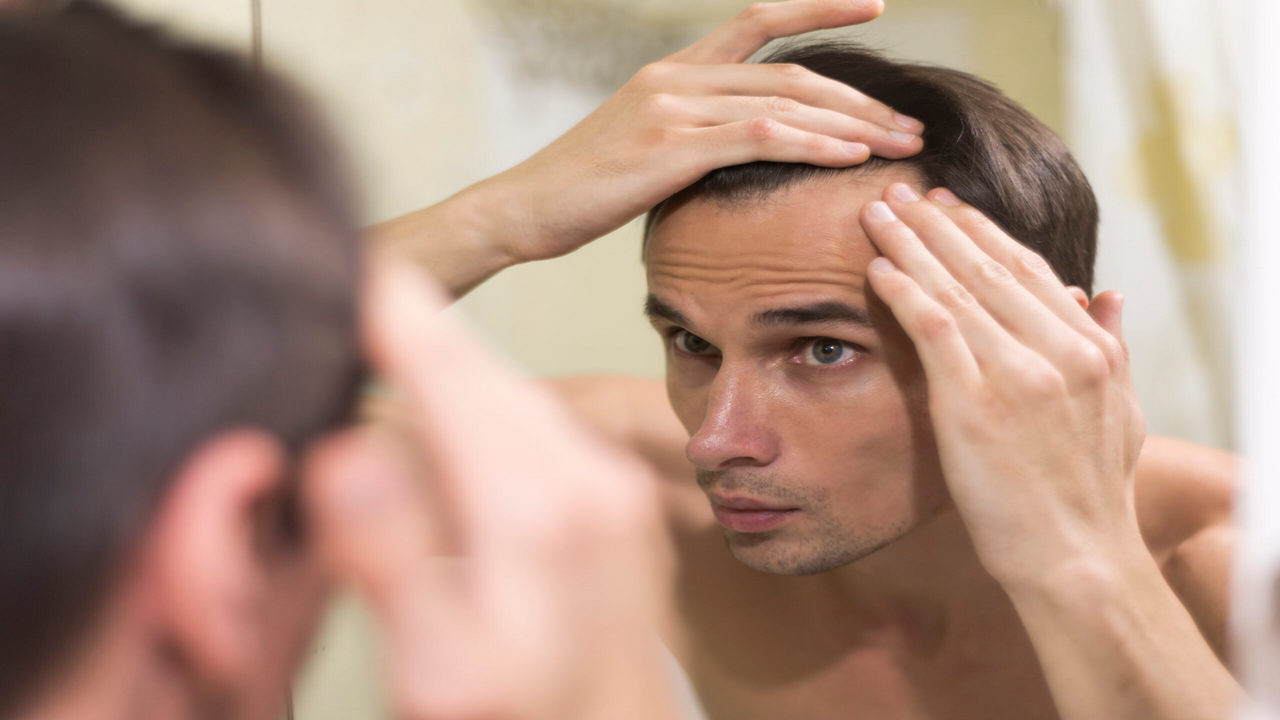Introduction
Are you losing more hair than is normal using your hair brush? Do your ponytails becoming thin? You may be experiencing hair thinning and it is more prevalent than you imagine, not only with age.
In today blog post we are going to a deep look at what causes hair thinning and how this effects men differently to women as well as when to see a practitioner. It is a gradual loss of hair thickness, when each of the hair strands becomes finer and the total volume becomes smaller. And the vital issue of how to cope with it, and, even better, how to reverse it.

What is Hair Thinning?
Hair Thinning vs. Hair Loss
Hair thinning is not baldness. In comparison to acute hair loss (clumps falling out), thinning is gradual and sneaks up.
Early Signs of Thinning Hair
- Wider parting lines
- Less volume and spring
- More scalp visible
- Excess shedding while
- showering or brushing
What Causes Hair Thinning?
Genetics and Heredity
There is good as well as bad news to the effect that, in case your parents had thinning hair, there is likelihood that you also will develop the problem. Chronic stress may also cause hair follicles to go into shedding phase or telogen effluvium.
Hormonal Changes
Hormonal changes e.g. caused by menopause, fetus, or thyroid can disturb the phase of hair growth.
Stress and Mental Health:
Chronic stress may stimulate the follicles to shed their hair, or telogen effluvium. Just imagine that your body is trying to survive not to be pretty.
Poor Diet and Nutrition
Your hair is starving for fuel—zinc, biotin, iron, vitamins A and D. Not getting enough of these? You’re going to see more scalp than you are shine.
Haircare Habits and Product Overuse
Constant ponytails, intense chemical treatments, and frequent heat styling- your hair does not forget anything.
Medical Conditions and Medications
There are diseases like PCOS, lupus, anemia, and even COVID-19 that can cause thinning. There are also medications such as antidepressants, birth control, and blood pressure pills that destroy your strands.
Hair Thinning in Men vs Women
Patterns of Thinning in Men
Often men will see a receding hairline or thinning at the crown, which can start as early as a man’s twenties.
Patterns of Thinning in Women
Instead of bald spots, women develop a thinning of the entire scalp.
Hormonal Roles and Differences
Men have testosterone and DHT as the biggest culprits. In women, the decline in estrogen and progesterone (after pregnancy or during menopause) is debilitating.
Psychological Impact by Gender
Though society is more accepting of baldness in men, there is a higher emotional cost to women and their appearance.
When Should You See a Doctor?
Warning Signs Not to Ignore
- Sudden shedding
- Bald patches
- Scalp irritation or pain
- Losing hair in clump
Diagnostic Tests and Evaluations
Doctors may recommend:
- Scalp biopsy
- Blood tests (thyroid, iron levels)
- Hormone panels
Specialists to Consult
Start with a dermatologist or a trichologist. They will tell you whether it is curable or if you need to seek more assistance.
Remedies and Treatments for Hair Thinning
Over-the-Counter Solutions
- Minoxidil (Rogaine): It can be found anywhere, and has hair growth stimulating effects.
- Caffeine shampoos: Stimulates the blood flow into the scalp.
Prescription Medications
- Finasteride (Propecia): It can only work in men but not women.
- Pironolactone: Helps women deal with hormonal loss of hair.
Natural Remedies and Essential Oils
- Rosemary oil: Shown to be as effective as Minoxidil in certain research.
- Castor oil, onion juice: The old time remedies, some people swear by them.
Professional Treatments
- RP Therapy:A procedure that involves the use of your own platelets to be injected to the scalp so as to naturally stimulate hair growth.
- Low Level Laser Therapy: This has been approved by the FDA as a hair regrowth therapy.
- Microneedling: It stimulates blood flow and collagen.
Lifestyle Changes That Support Hair Health
- Get more sleep
- Reduce stress
- Stay hydrated
- Exercise regularly
Tips for Keeping Your Hair Healthy and Reducing Thinning
Proper Hair Care Routine
- Avoid daily heat styling
- Use sulfate-free shampoos
- Don’t over-wash—2–3 times/week is enough
Diet and Supplements for Hair Growth
- Eat protein heavy foods(eggs,fish,nuts)
- Include iron, biotin and zinc-enriched options
- Try hair supplements
Scalp Health and Hygiene
- Clean scrub scalp every month
- Stay hydrated
- Don’t overuse heavy styling products as they can clog pores.
Habits to Avoid
- Smoking (yes, it is bad for hair)
- Crash diets
- Ignoring symptoms of imbalance (fatigue or irregular periods)
Conclusion
Hair thinning is not the end of the world, but it is a red flag being waved by your body. It can be stress, hormones or even genetic but at least half of the problem is figured out. The other half? Regular attention, therapy and tolerance.
Your hair is your personality The correct procedure will not only help you regain volume–but your confidence, as well.
FAQ
Mayank Rawat
Certified Skincare Consultant and passionate researcher, I specialize in exploring skincare ingredients and haircare actives. Always eager to stay ahead of trends, I continuously update my knowledge to bring science-backed solutions. Dedicated to helping others achieve healthy skin and hair through expertise and innovation.